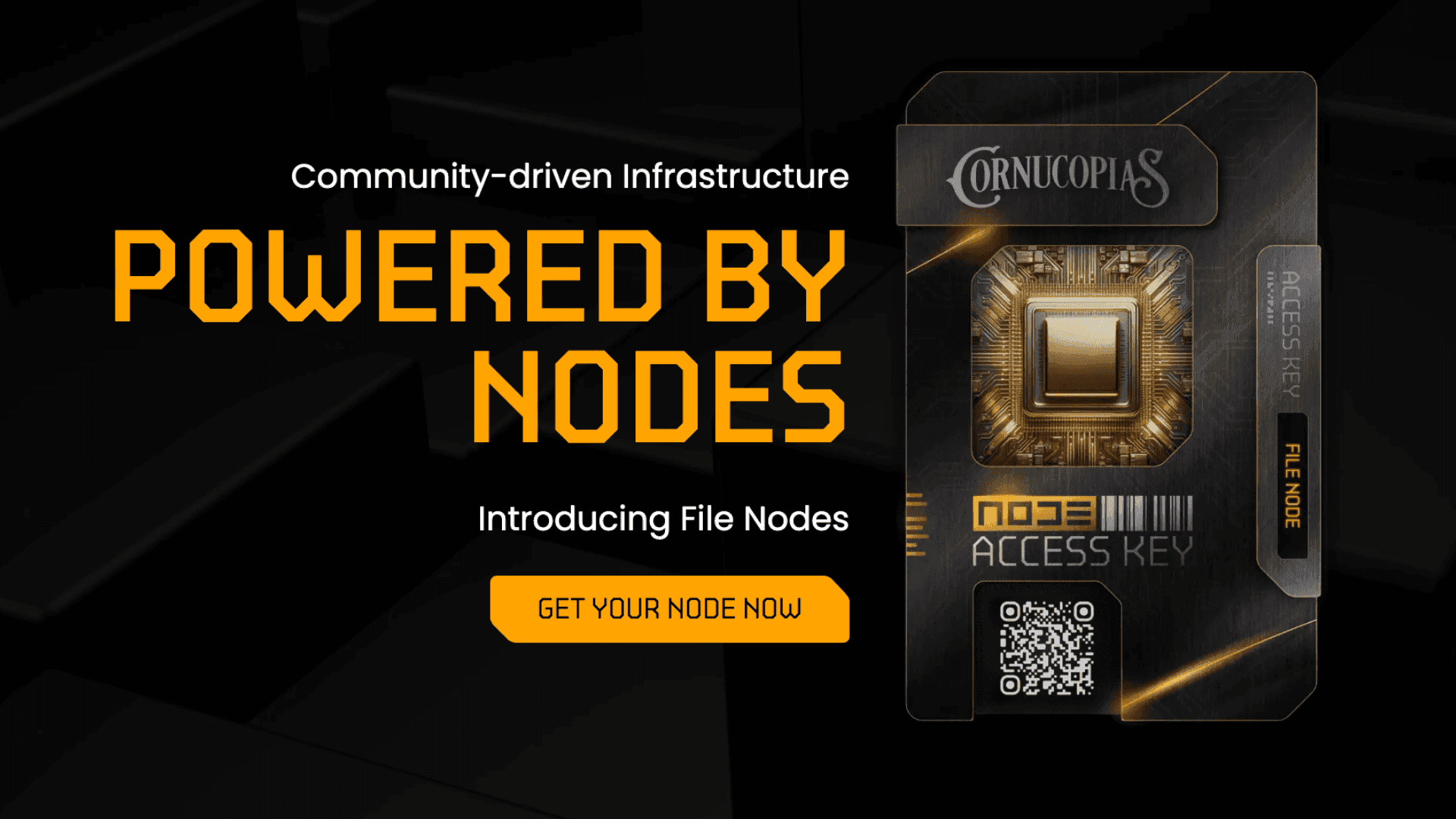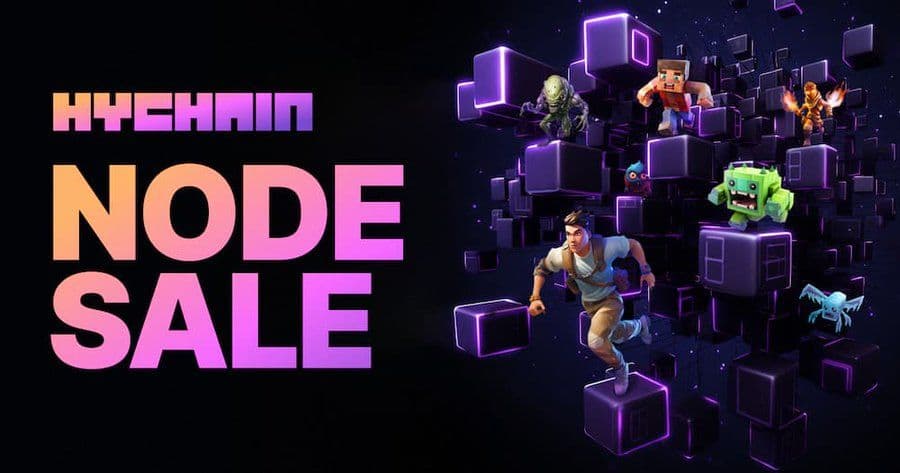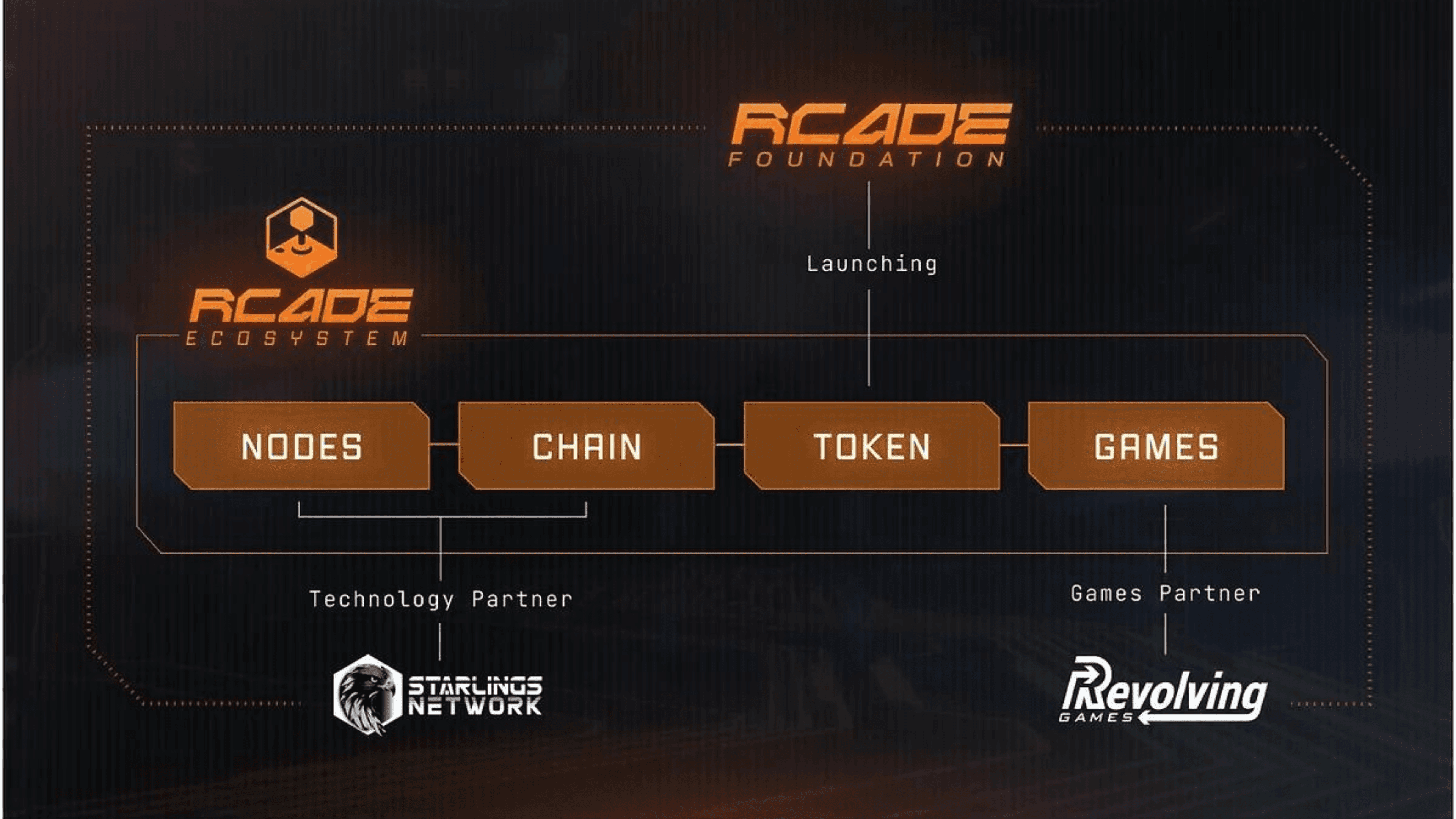Over the past two years, Cornucopias has developed and tested its File Node Infrastructure in collaboration with its community. What began as a concept demonstration has evolved into a fully operational decentralized network.
The latest game build was released with new features such as Motion Matching, a refined character movement system, an updated Avatar 3.0, and an integrated combat system that includes weapon functionality. Notably, this version was not distributed through traditional cloud services like AWS. Instead, it was delivered through a decentralized network of community-operated nodes, marking a significant change in how game content is shared with players.

Cornucopias Reveals File Node NFTs
Understanding File Node NFTs
File Node NFTs are blockchain-based digital assets that act as software licenses, enabling holders to operate nodes within the Cornucopias distribution network. These nodes are responsible for hosting and distributing encrypted game files to players. When users download or update the game, they receive files from the most efficient available nodes instead of a centralized server.
This process improves the performance and reliability of file access while reducing the system’s dependency on cloud-based platforms. These NFTs are deployed on both the Base and Cardano blockchains, which broadens accessibility for participants and supports scalability as the network grows.

Cornucopias Reveals File Node NFTs
How the Node System Operates
Operators of File Node NFTs host game files either on personal hardware or through private cloud services. When a player initiates a download, the system automatically determines the most suitable nodes based on network conditions. This approach distributes the load across multiple operators, decreasing the risk of delays and service interruptions.
Participation in the network requires that node operators hold 3,000 $COPI tokens in their wallets. This token requirement supports the broader token economy within Cornucopias and ensures that operators are actively contributing to the system’s performance. Operators are rewarded based on their contribution, which creates a self-sustaining model that aligns technical infrastructure with economic incentives. Please watch the below video in 4k.
Cost Reductions and Operational Efficiency
The shift to decentralized file distribution significantly reduces the costs associated with traditional cloud hosting. In centralized models, annual expenses for file hosting and distribution can reach into the hundreds of thousands of dollars. The decentralized node system developed by Cornucopias is estimated to lower these costs by approximately 95 percent, offering a more financially sustainable model for game delivery.
This cost efficiency also enhances the overall gaming experience. With multiple nodes working in parallel, download speeds are improved, and players experience fewer interruptions. The system also strengthens community engagement, as node operators become more invested in the game’s ecosystem through their role in content delivery.

Cornucopias Reveals File Node NFTs
Community Benefits and Ecosystem Growth
Beyond operational advantages, the node infrastructure introduces several benefits for the broader Cornucopias community. Operators receive performance-based rewards in the form of $COPI tokens, creating a direct incentive to maintain and improve their node contributions. Holding a File Node NFT also provides guaranteed access to future node sales, allowing early supporters to continue participating as the system expands.
Additional incentives include access to exclusive NFT sales and early access to new game content. Each node operator is also identified within the game through a unique badge, which reinforces their role within the community and promotes recognition for their contributions.
The Role of Web3 in Game Distribution
The implementation of Cornucopias File Node NFTs illustrates how web3 technologies can provide practical solutions to longstanding challenges in game distribution. By reducing infrastructure costs and creating more direct pathways for community involvement, the model offers an alternative to traditional centralized systems. The use of blockchain-based licenses, combined with performance incentives and token utility, helps establish a sustainable and participatory network.
As web3 adoption continues to grow within the gaming sector, models like the one introduced by Cornucopias suggest a potential shift in how games are supported, delivered, and maintained. For developers and studios exploring decentralized alternatives, the Cornucopias platform presents a working example of what is possible through this approach.
For those interested in learning more or participating in the node network, the Cornucopias team can be contacted here.



